Sensitive Skin: Causes, Symptoms, and How to Fix It

Have you ever asked yourself — why does my skin feel like it is constantly revolting against me? One day its itchy, the next its red, and then somedays it flares up from products that you have been using for years. Sensitive skin is one of the most annoying and difficult to deal with skin conditions — but if you understand the why and the how of sensitive skin, you can take the reins.
In this comprehensive guide, we’ll dive into:
- What causes skin to be very sensitive?
- Signs and symptoms of sensitive skin.
- Practical steps to fix and manage sensitive skin.
- Common questions answered.
Let’s get started with understanding the root of the problem!
What Causes Skin to Be Very Sensitive?

Sensitive skin is not a blanket diagnosis by any means, but one that shows skin that is easily irritated and uncomfortable. There are many potential triggers of sensitive skin, and finding the cause is essential for treating it.
1. Weakened Skin Barrier

Your skin can be divided into layers, and the top layer, the stratum corneum, serves as a barrier. It retains moisture, while also preventing the entrance of irritants. That barrier protects your skin from external aggressors such as pollution, allergens, and harsh chemicals, but when it gets damaged, your skin is unprotected.
- What weakens the skin barrier?
- Over-cleansing or over-exfoliating your skin.
- Using harsh soaps, alcohol-based toners, or sulfates.
- Environmental factors like cold weather or dry air.
A weakened barrier often leads to dryness, redness, and stinging — the hallmarks of sensitive skin.
2. Skin Conditions That Cause Sensitivity
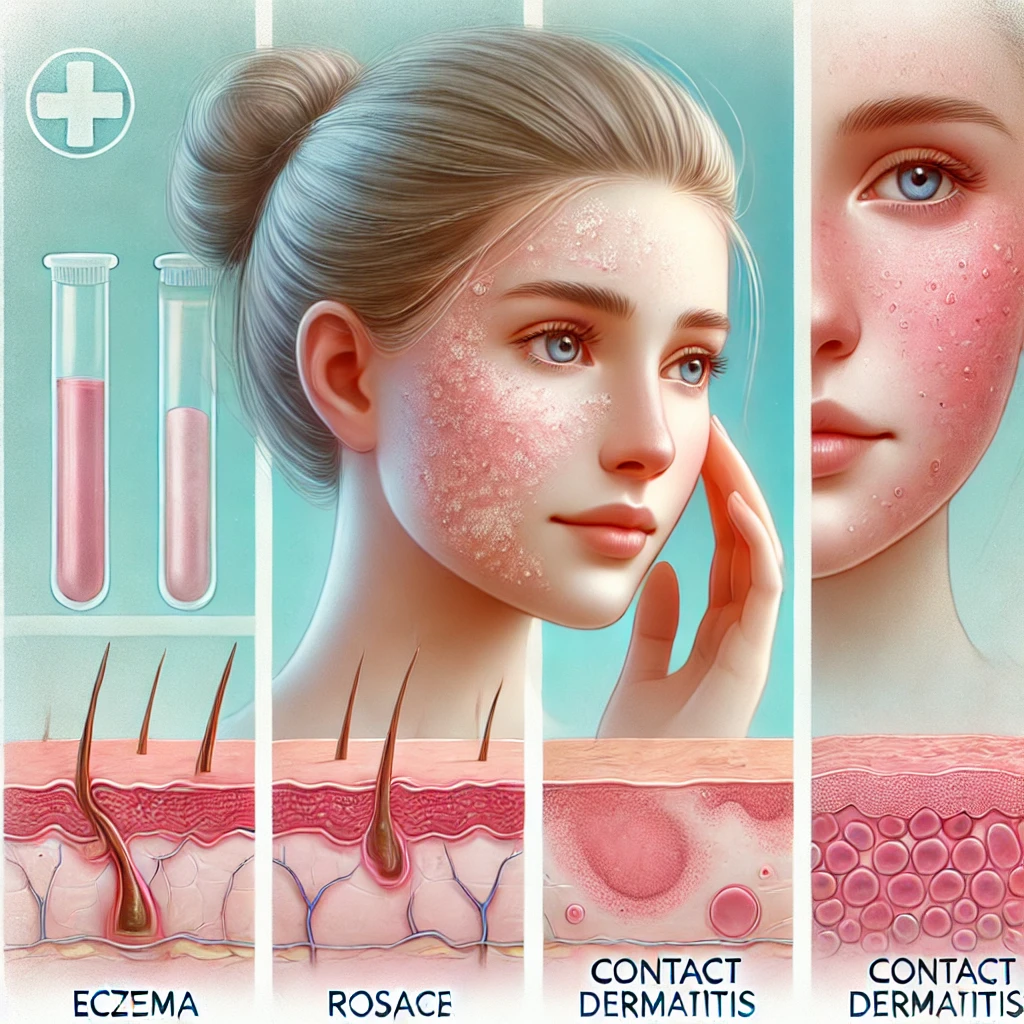
Certain medical conditions make the skin naturally more sensitive. These include:
- Eczema (Atopic Dermatitis): A chronic condition where the skin becomes dry, itchy, and inflamed.
- Rosacea: Characterized by redness, flushing, and visible blood vessels, often triggered by certain foods, drinks, or temperatures.
- Contact Dermatitis: A reaction to allergens or irritants like fragrances, dyes, or metals.
- Psoriasis: Causes scaly, inflamed patches of skin.
If you have any of these conditions, your skin may require extra care and attention.
3. Hypersensitivity and Allodynia

In some cases, sensitive skin is related to nerve problems. For instance, allodynia involves tenderness of the skin to touch without evidence of rash or injury. This can occur due to:
- Nerve inflammation.
- Chronic stress.
- Certain illnesses like fibromyalgia.
4. Age-Related Sensitivity

With aging, our skin stops secreting natural oil, making it dry and more sensitive. Also as the self repair mechanism of the skin reduces, it becomes more reactive to the changes external to the body.
5. Environmental Triggers

External factors can wreak havoc on sensitive skin, such as:
- Weather changes: Cold, windy weather or hot, humid conditions.
- Pollution: Dirt and toxins in the air can irritate the skin.
- UV radiation: Sun exposure can damage the skin barrier and increase sensitivity.
6. Lifestyle and Product Choices
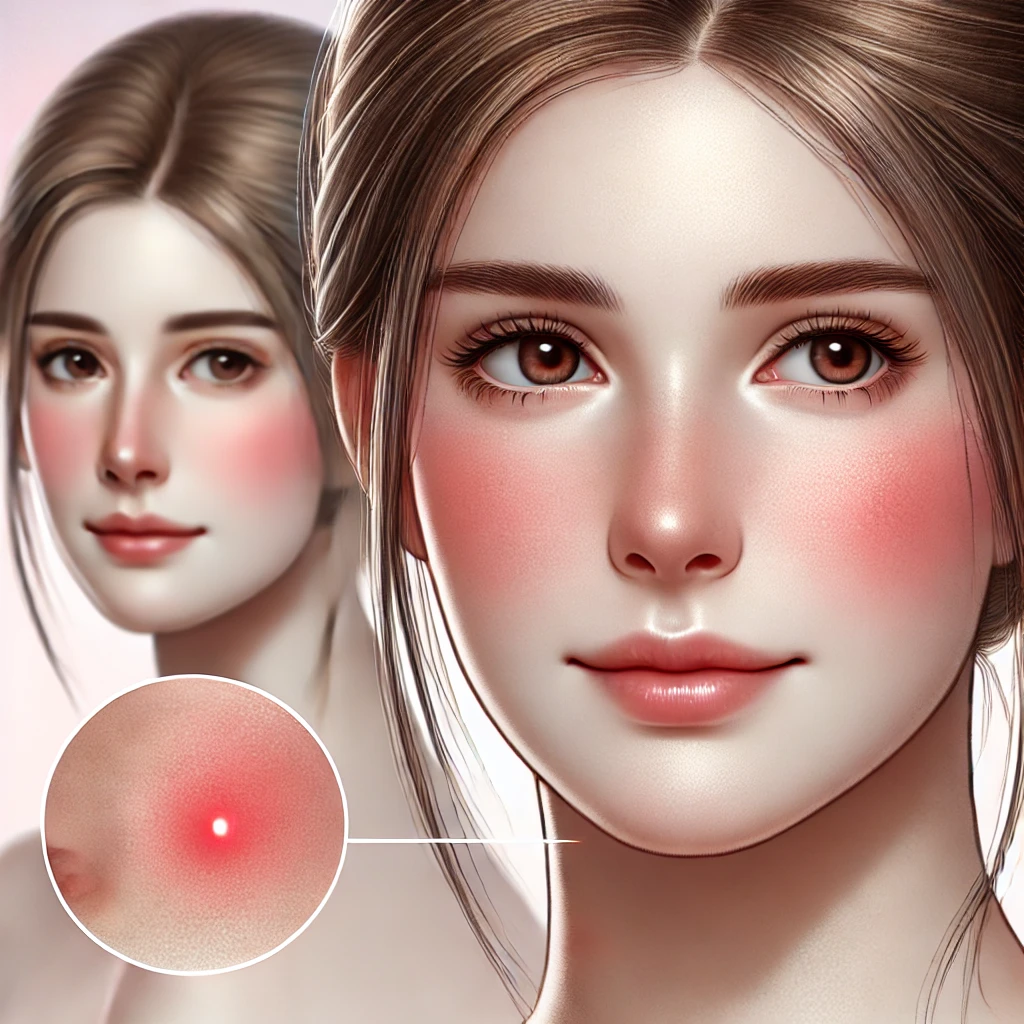
Sometimes, sensitive skin is triggered by choices we don’t realize are harmful:
- Overuse of exfoliants (chemical or physical).
- Using products with strong fragrances or essential oils.
- Stress, which releases hormones that disrupt the skin’s natural balance.
Signs Your Skin Might Be Sensitive
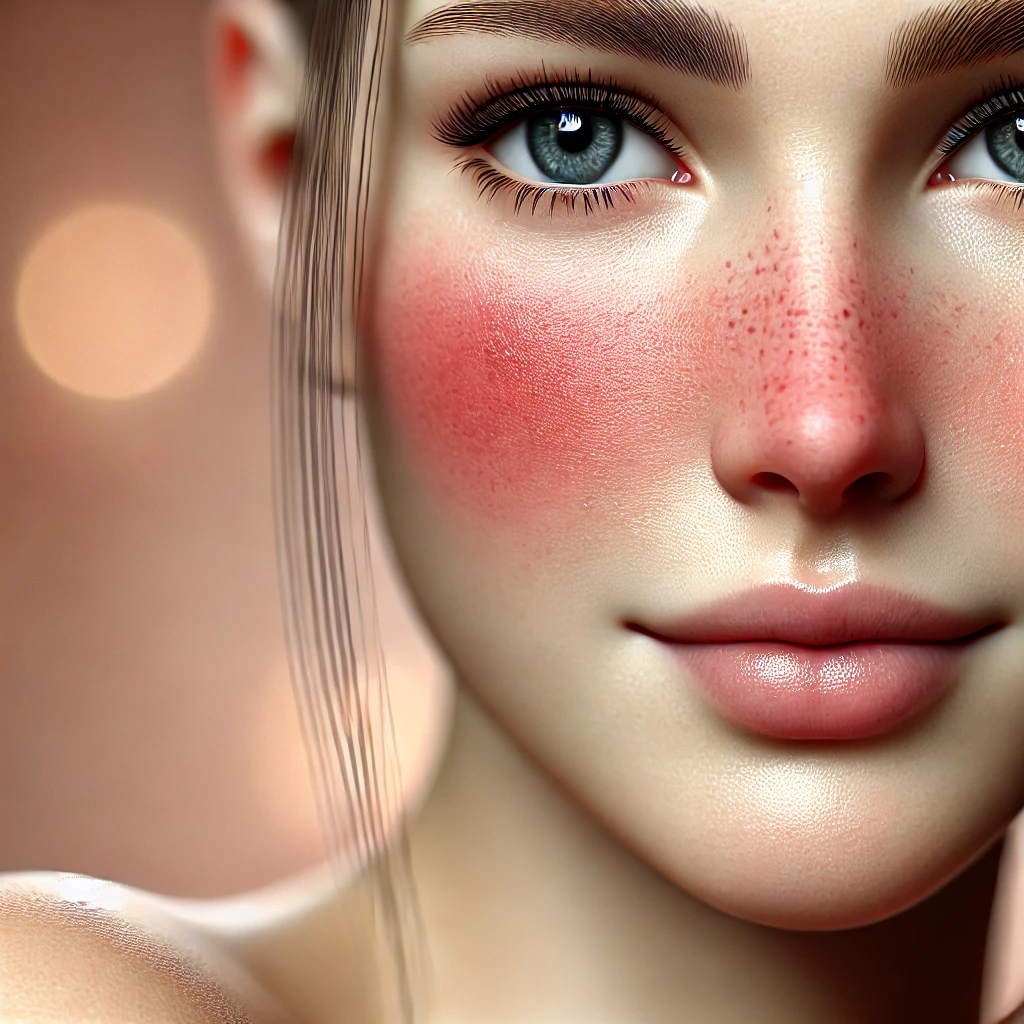
Sensitive skin shows up differently for everyone, but here are some common signs:
- Redness or blotchiness after using products or exposure to the environment.
- Burning or stinging sensations, especially with cleansers or creams.
- Dry, flaky patches that feel tight.
- Swelling or small bumps after applying makeup or sunscreen.
- Skin that feels tender or painful to the touch.
You know you’ve asked yourself, why the hell is my skin reacting to everything nowadays?, it could be all of the above—anything from a compromised skin barrier to an environmental shift.
How Do You Fix Sensitive Skin?
Caring for sensitive skin shouldn’t feel complicated To get your skin back in balance, takes a bit of work, but it can be done. Get yourself a sensitive skin-friendly routine here:
1. Cleanse Gently

Cleansing is essential, but it should be done with care:
- Choose the right cleanser: Look for a sulfate-free, non-foaming cleanser labeled “gentle” or “for sensitive skin.”
- Avoid over-cleansing: Wash your face no more than twice a day to prevent stripping your skin of natural oils.
- Lukewarm water is your friend: Hot water can further irritate sensitive skin.
Example Products: Cetaphil Gentle Skin Cleanser, La Roche-Posay Toleriane Hydrating Gentle Cleanser.
2. Moisturize Religiously
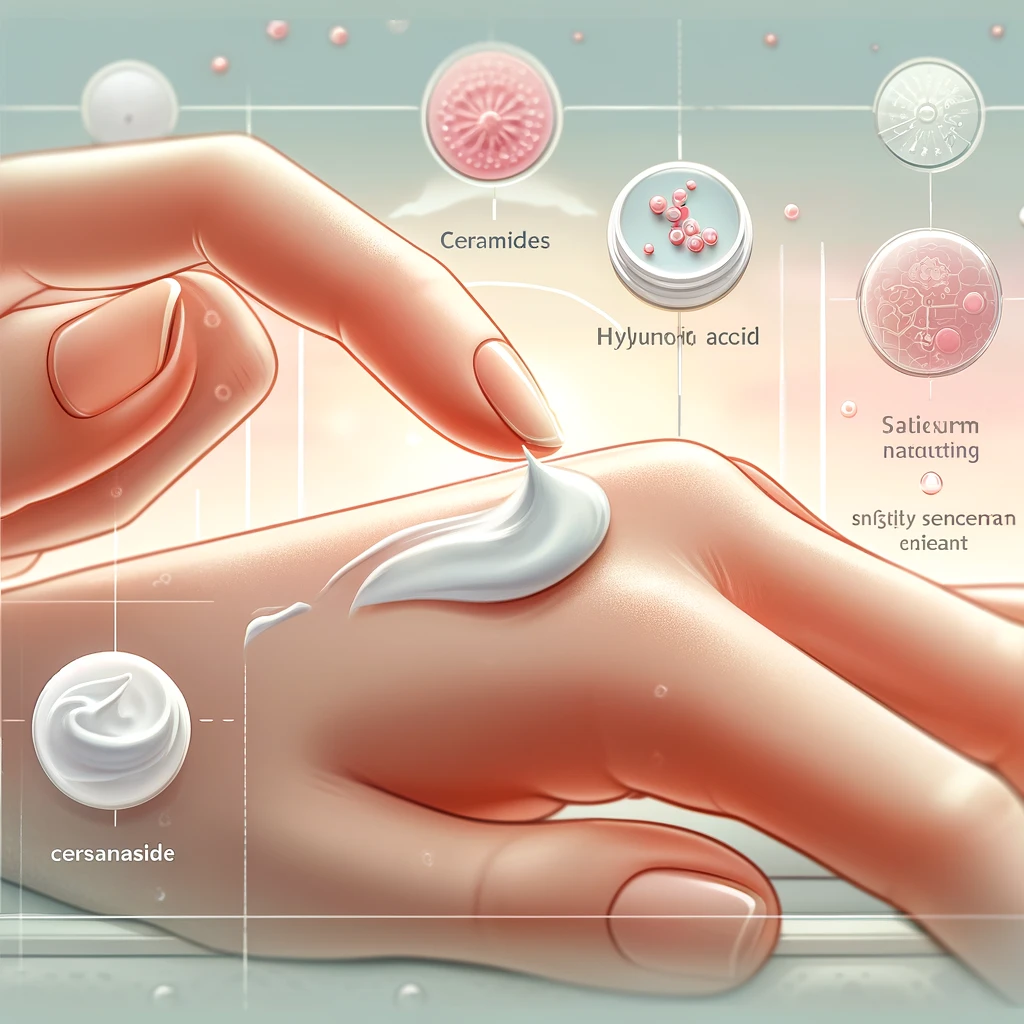
Hydration is key to repairing the skin barrier:
- Look for ceramides and hyaluronic acid: These ingredients help lock in moisture and strengthen the skin.
- Use a thicker cream: Lightweight lotions might not provide enough hydration for sensitive skin.
Pro Tip: Apply moisturizer to slightly damp skin to seal in water.
Example Products: CeraVe Moisturizing Cream, Vanicream Moisturizing Cream.
3. Sun Protection is Non-Negotiable
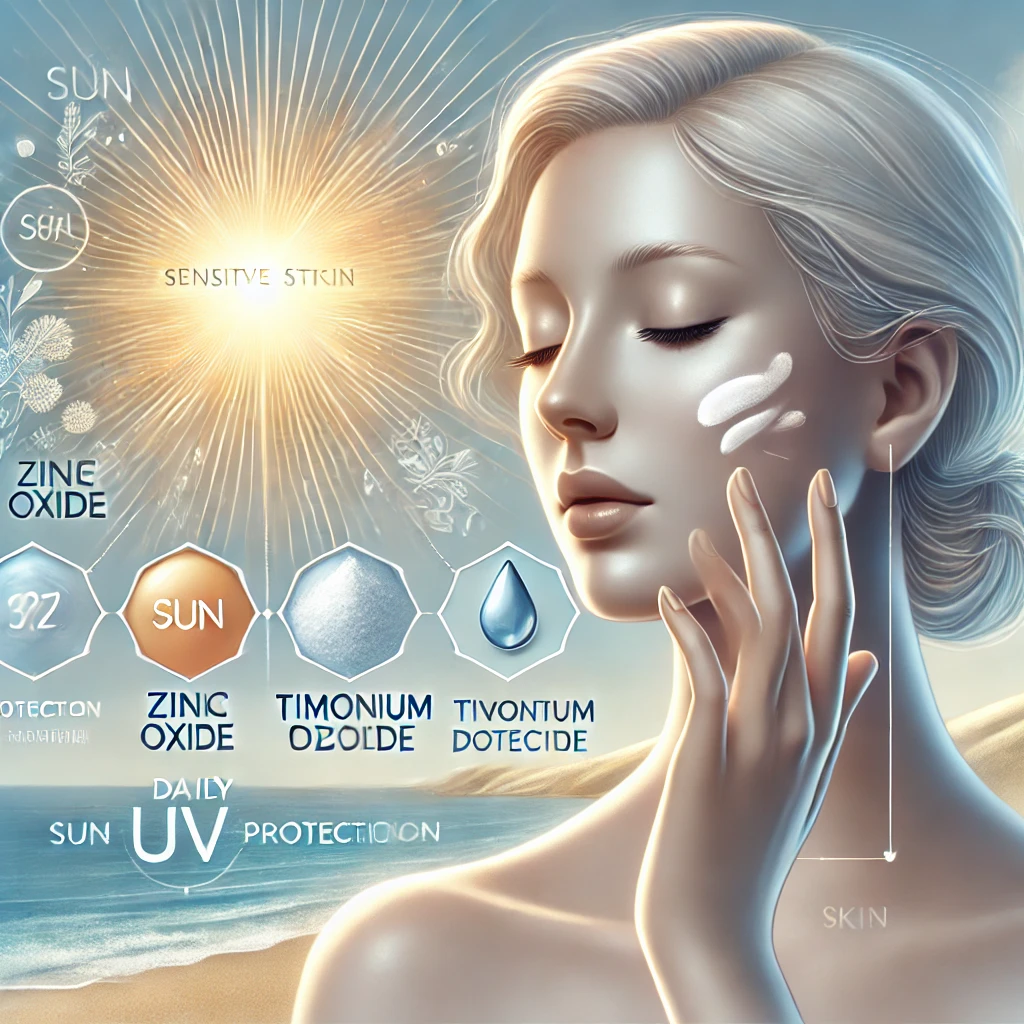
Sensitive skin is more vulnerable to UV damage. Use sunscreen daily:
- Opt for mineral-based sunscreens: Look for zinc oxide or titanium dioxide, which are less likely to cause irritation.
- Avoid chemical sunscreens: Ingredients like oxybenzone can trigger reactions.
Example Products: EltaMD UV Clear Broad-Spectrum SPF 46, Neutrogena Sheer Zinc Sunscreen.
4. Avoid Triggers
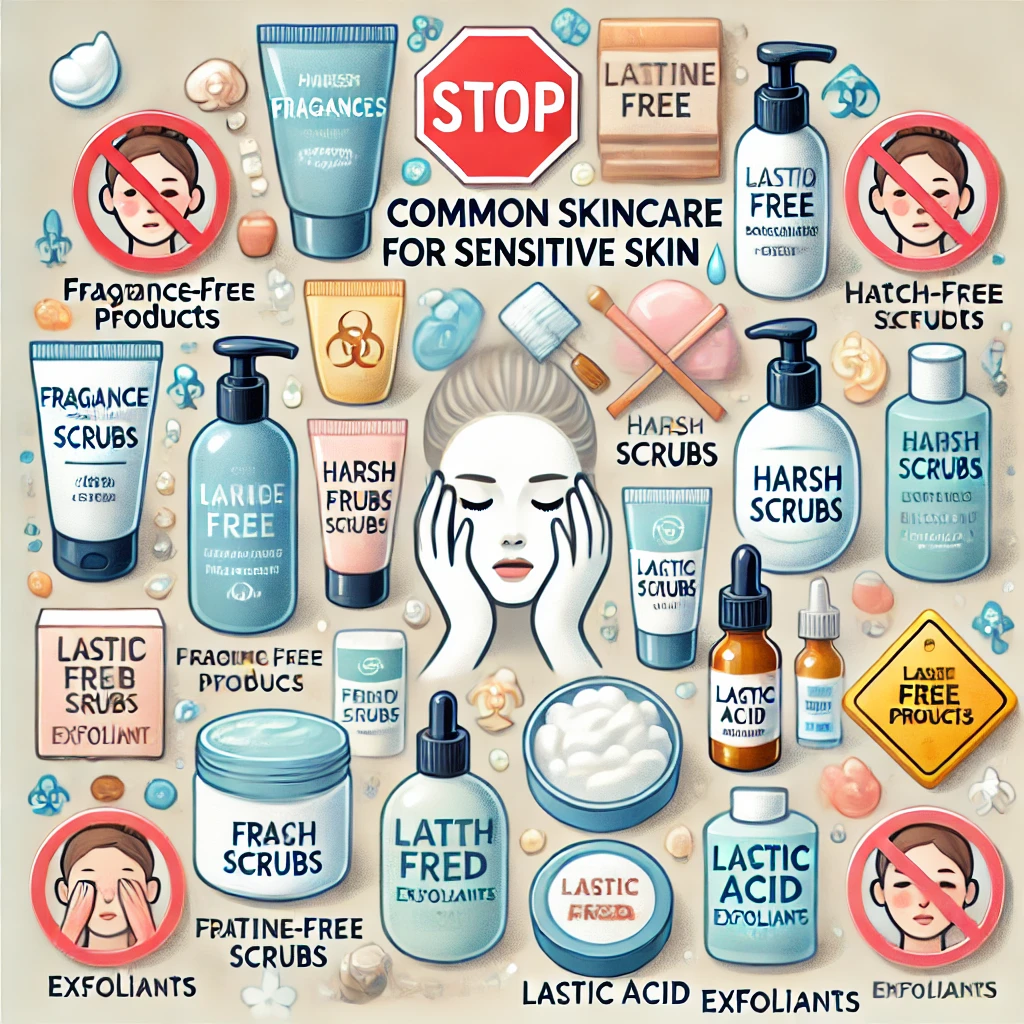
Identify and eliminate common irritants:
- Fragrances: Opt for fragrance-free products.
- Harsh exfoliants: Replace scrubs with gentle chemical exfoliants like lactic acid.
- Dyes and preservatives: Check labels for potential allergens like parabens or artificial colors.
5. Patch-Test New Products
Before trying a new skincare product, test it on a small area of your skin (like your wrist). Wait 24 hours to check for reactions.
6. Soothe Flare-Ups
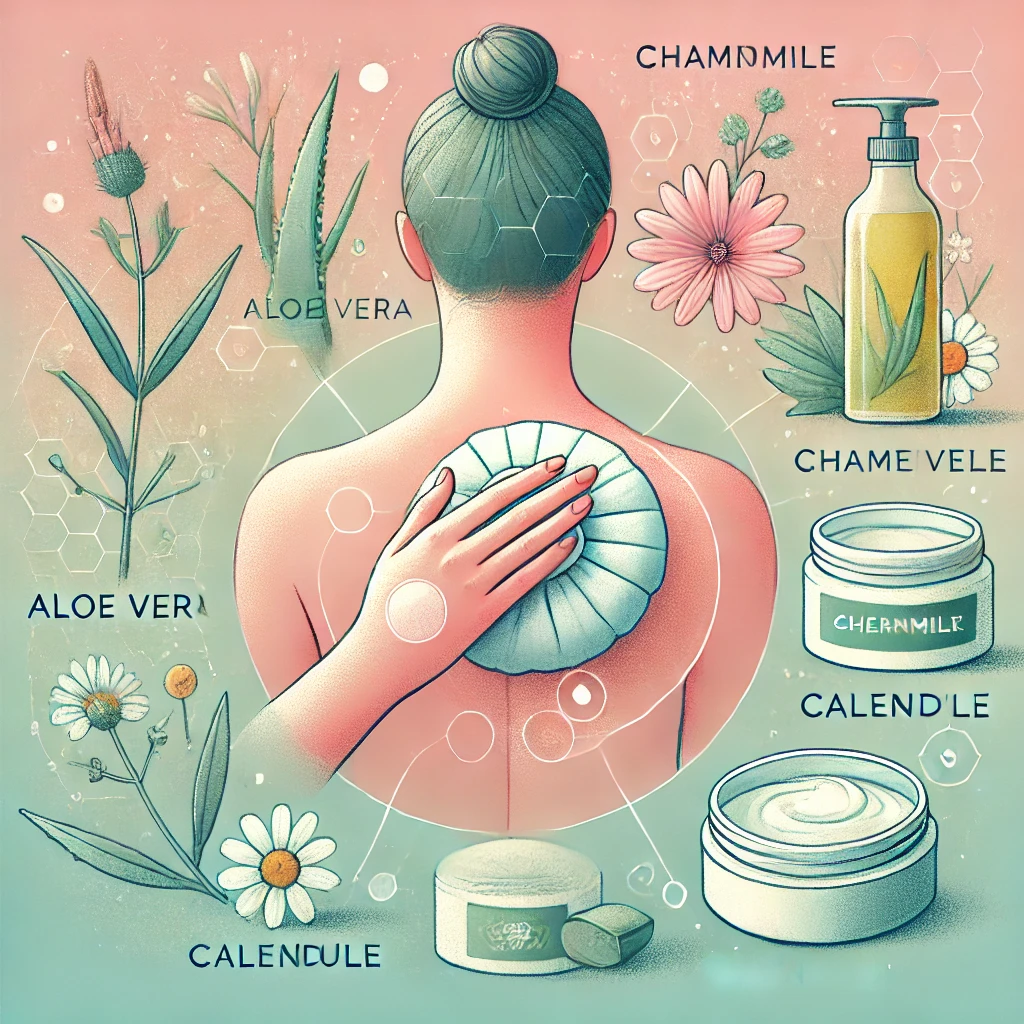
When your skin feels inflamed:
- Apply a cool compress for immediate relief.
- Use products with calming ingredients like aloe vera, chamomile, or calendula.
Example Products: Avene Skin Recovery Cream, First Aid Beauty Ultra Repair Cream.
7. Nourish from the Inside Out
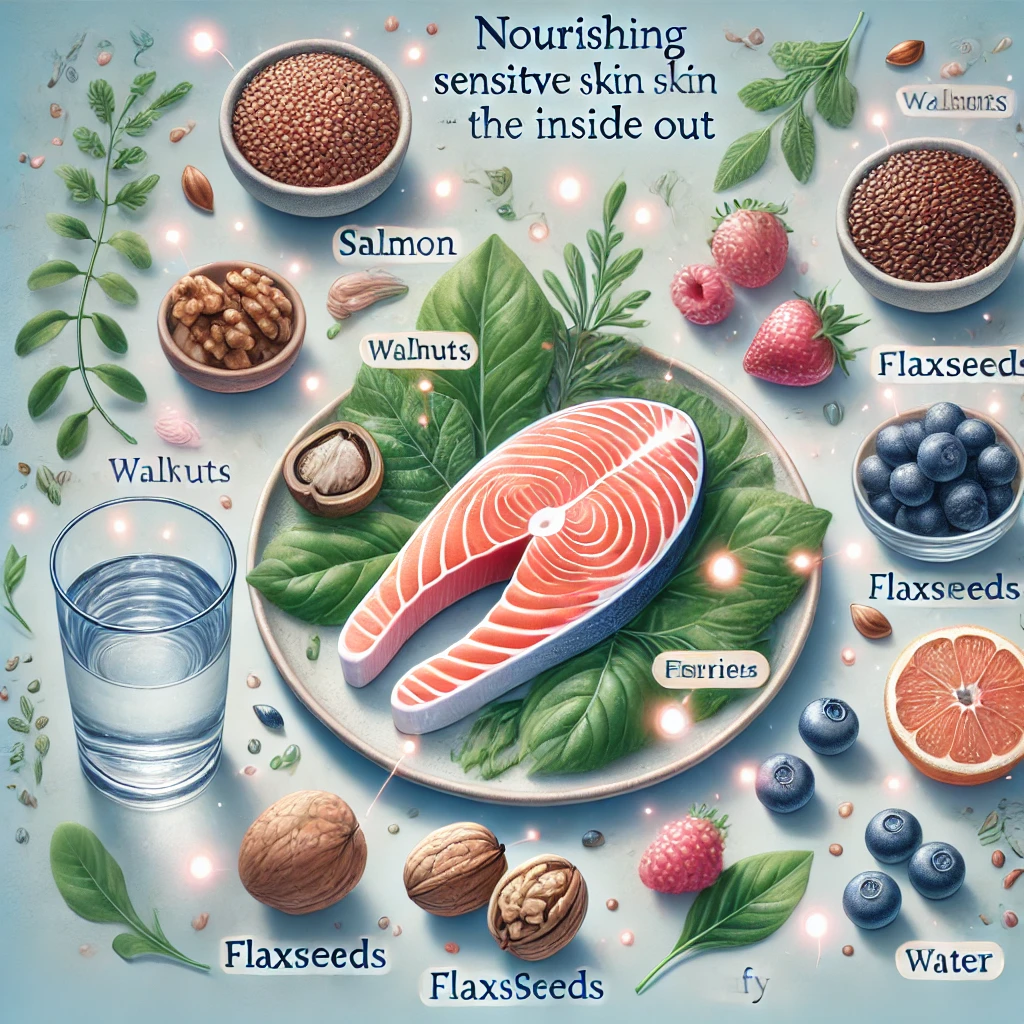
What you eat can impact your skin. For sensitive skin:
- Eat foods rich in omega-3 fatty acids (like salmon, walnuts, and flaxseeds) to reduce inflammation.
- Stay hydrated with plenty of water and avoid excessive caffeine or alcohol.
- Incorporate antioxidant-rich foods (like berries and leafy greens) to support skin health.
8. Consult a Dermatologist
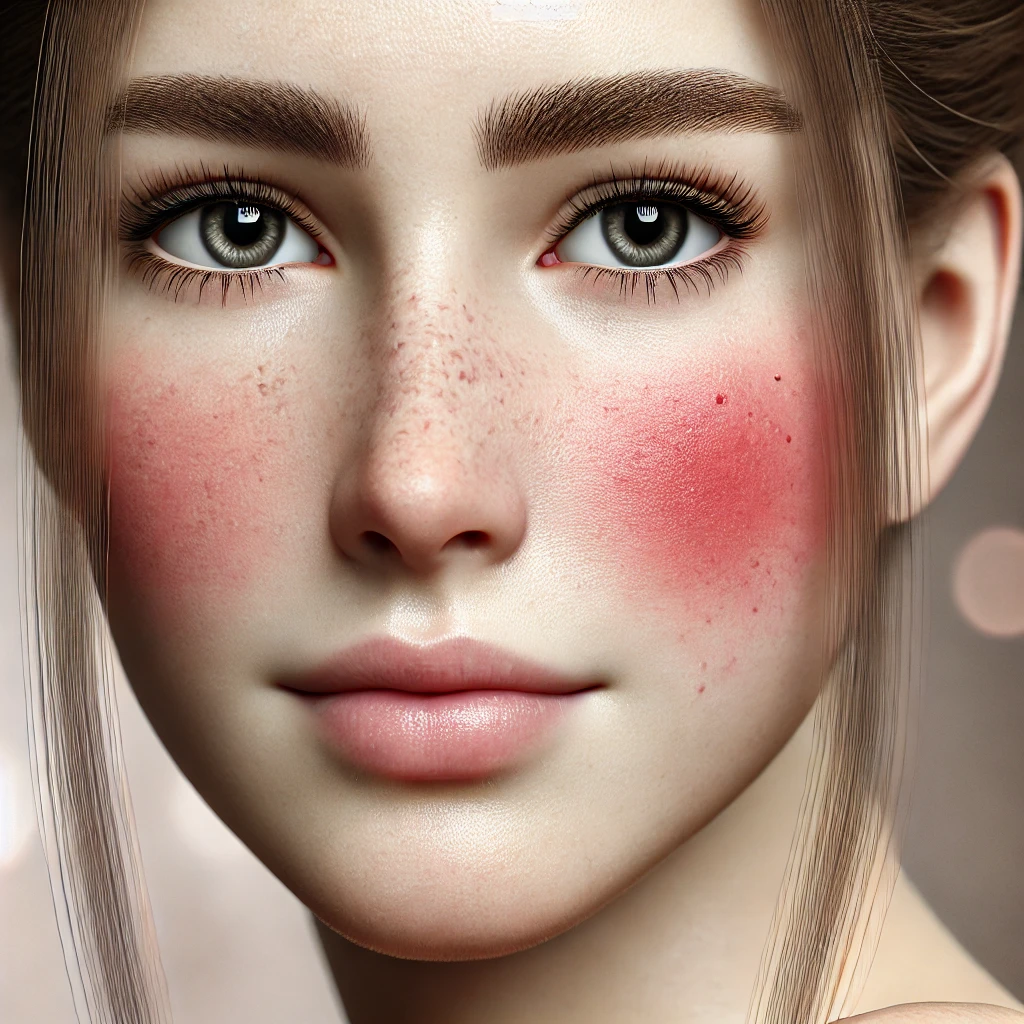
If your skin sensitivity is severe or persistent, it’s worth seeking professional advice. A dermatologist can diagnose underlying conditions and recommend treatments, such as:
- Prescription barrier-repair creams.
- Topical steroids for flare-ups.
- Oral medications if sensitivity is related to allergies or systemic conditions.
FAQs About Sensitive Skin
Here are answers to some common questions about sensitive skin:
1. Can sensitive skin go back to normal?
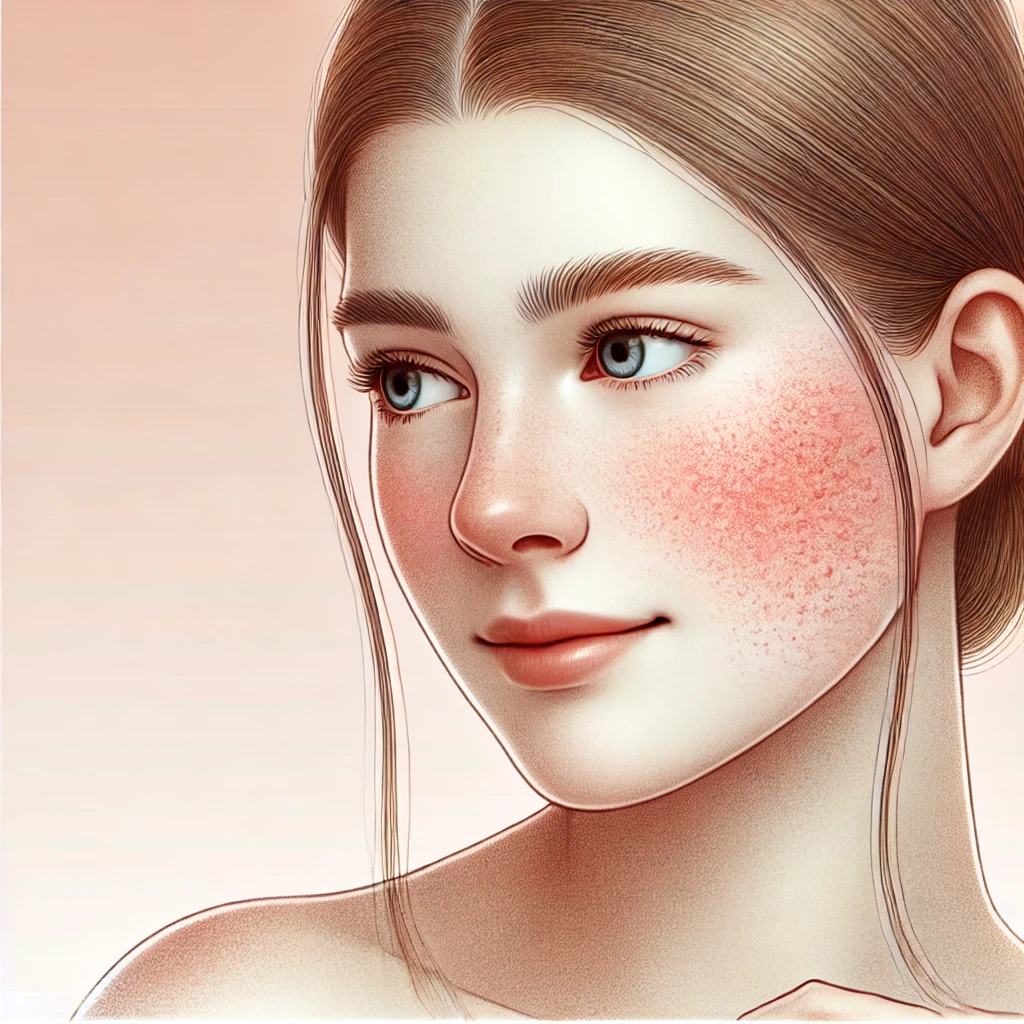
Yes! With consistent care and by avoiding triggers, your skin can become less reactive. However, some medical conditions may require ongoing management.
2. What’s the best moisturizer for sensitive skin?

Look for moisturizers with:
- Ceramides (to repair the barrier).
- Hyaluronic acid (to hydrate).
- Niacinamide (to calm redness).
Examples: CeraVe, La Roche-Posay Toleriane, and Vanicream.
3. What triggers sensitive skin?
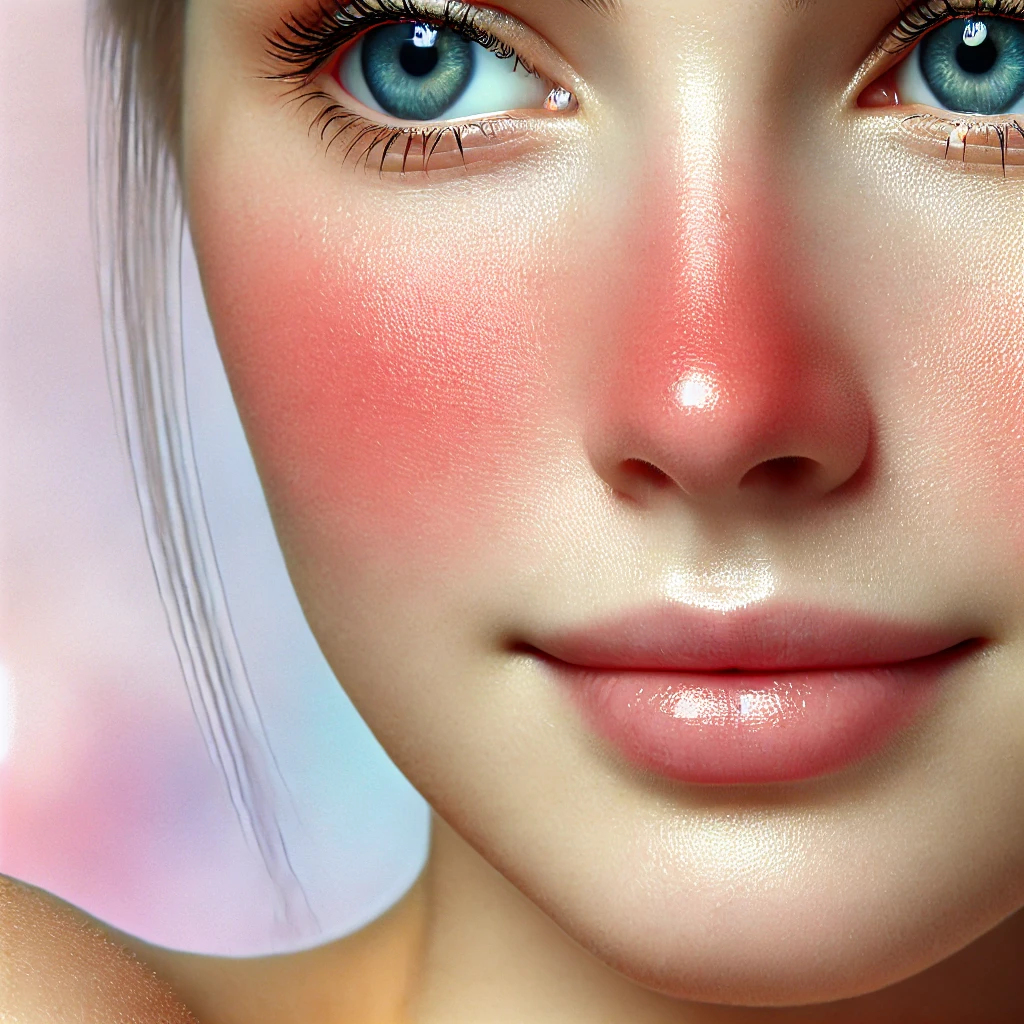
Common triggers include:
- Harsh chemicals (in skincare or cleaning products).
- Sun exposure.
- Weather extremes.
- Stress and lack of sleep.
4. Does hypersensitive skin go away?
In many cases, hypersensitivity can improve with proper care. If it’s caused by a chronic condition like eczema or rosacea, symptoms can be managed but may not disappear completely.
5. What not to put on irritated skin?

Avoid products with:
- Fragrance or essential oils.
- Alcohol-based toners.
- Harsh exfoliants like walnut scrubs.
Final Thoughts
It can feel debilitating to live with sensitive skin, but its nature should not dictate your life. What you can control is knowing why it happens, identifying your triggers, and developing a simple yet effective skincare routine so that you can keep your skin calm, healthy and glowing.
Remember, listen to your skin. Look at what performs — and what does not — a modest tweak makes a big distinction over the years. And if you ever find yourself in a rut, consult with a dermatologist for further assistance.
Your skin deserves love and care — treat it gently, and it will thank you. 😊






